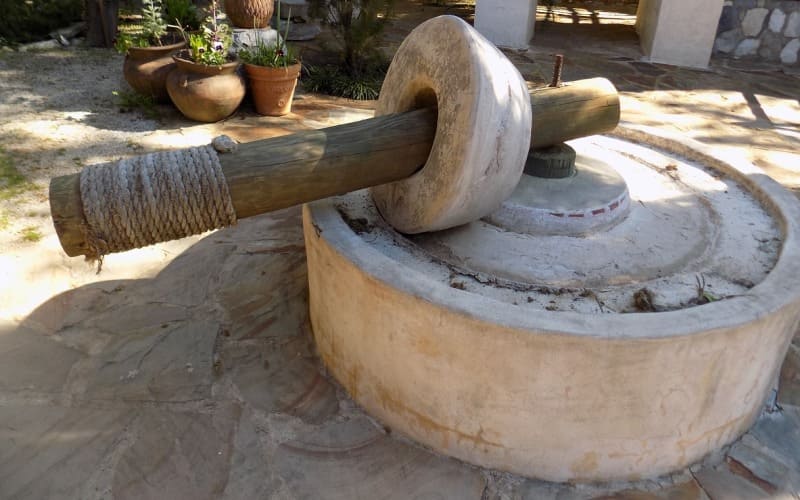In a quaint village nestled in the rolling hills of Tuscany, there stands an olive press that has been in operation for over a century. Every year, during the olive harvest season, villagers gather to witness the age-old tradition of pressing olives into golden, aromatic oil. The air is filled with the scent of freshly crushed olives, and the rhythmic sounds of the press create a symphony of heritage and craftsmanship. This story, steeped in history, reflects the enduring significance of the olive press in cultures around the world.
The Historical Roots of the Olive Press
The olive press is an ancient invention that dates back thousands of years. The earliest evidence of olive oil production dates to around 4000 BCE in the Mediterranean region, where olives were first domesticated. The Greeks and Romans refined olive pressing techniques, and the basic design of the press has remained relatively unchanged over the centuries. Traditional olive presses consisted of large stone wheels that crushed the olives, followed by pressing the paste to extract the oil.
Modern Advances and Techniques
While the essence of olive pressing remains rooted in tradition, modern technology has revolutionized the process. Contemporary olive presses often employ centrifugal extraction methods, which are faster and more efficient. These advanced techniques not only enhance the quality of the oil but also increase production capacity. According to the International Olive Council, global olive oil production reached approximately 3.2 million metric tons in the 2020/2021 crop year, reflecting the growing demand for this versatile oil (International Olive Council, 2021).
The Health Benefits of Olive Oil
Olive oil is celebrated not only for its culinary versatility but also for its numerous health benefits. Rich in monounsaturated fats, antioxidants, and anti-inflammatory properties, olive oil is a staple of the Mediterranean diet, which is associated with reduced risks of chronic diseases. A study published in the New England Journal of Medicine found that individuals who followed a Mediterranean diet supplemented with extra-virgin olive oil had a significantly lower risk of cardiovascular events compared to those on a low-fat diet (Estruch et al., 2018).
Economic Impact
The olive oil industry is a significant economic driver in many Mediterranean countries. Spain, Italy, and Greece are the top producers, accounting for about 70% of global production. In Spain alone, the olive oil sector generates over 1 billion euros annually and employs thousands of people (European Commission, 2020). The global market for olive oil continues to expand, driven by increasing awareness of its health benefits and the growing popularity of Mediterranean cuisine worldwide.
Sustainability and Environmental Considerations
As with any agricultural practice, olive oil production has its environmental challenges. However, there is a growing movement towards sustainable and organic olive farming. Traditional farming methods, such as dry farming and integrated pest management, are being revived to reduce the environmental footprint. Additionally, byproducts of olive oil production, such as olive pomace, are being utilized for energy production and animal feed, contributing to a circular economy.
Cultural Significance
The olive press is more than just a tool for extracting oil; it is a symbol of cultural heritage and community. In many Mediterranean regions, the olive harvest is a time of celebration, bringing families and communities together. Festivals, known as “sagra delle olive” in Italy and “fiesta de la aceituna” in Spain, celebrate the olive harvest with music, dance, and, of course, plenty of olive oil tasting.
The Future of Olive Oil
The future of olive oil production looks promising, with continued advancements in technology and a growing emphasis on sustainability. Innovative approaches, such as precision agriculture and the use of drones for monitoring olive groves, are enhancing efficiency and yield. Moreover, the global trend towards healthier eating habits and natural products bodes well for the olive oil market.
Conclusion
The olive press, an ancient invention, remains a vital part of modern life. From its historical roots to its present-day significance, the olive press symbolizes a blend of tradition and innovation. As we savour the rich flavours of olive oil, we are reminded of the timeless bond between nature and culture and the enduring legacy of the olive press.






